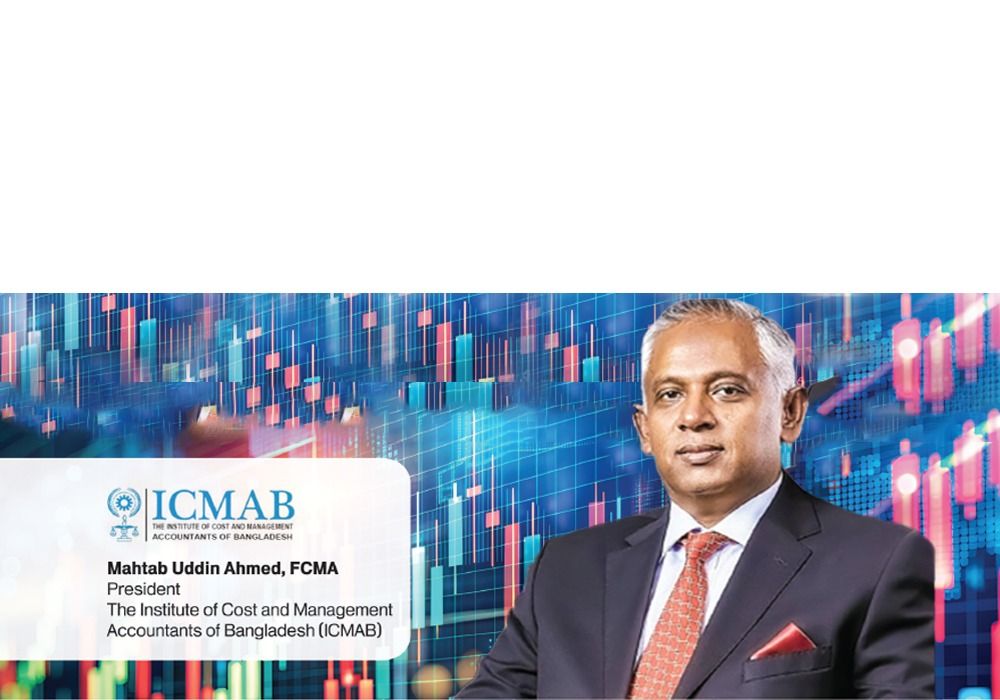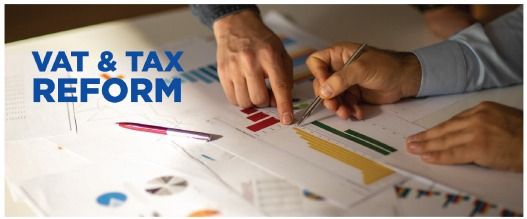- info@ficci.org.bd
- |
- +880248814801, +880248814802
- Contact Us
- |
- Become a Member
- |
- |
- |
- |
- |

In Bangladesh, being an honest taxpayer often feels like a punishment; you are rewarded with higher taxes, surprise audits, and the occasional fine. Tax evaders, meanwhile, are treated like rare wildlife, untouchable and well-protected. Politician-businessmen dodge taxes and bank dues with ease, while foreign investors are milked like colonial-era cash cows. Local firms, armed with "creative" accountants, thrive under the radar. Fair play? Only if cricket were played uphill, blindfolded. It's less of a tax system and more of a tragicomedy. Yet, despite this skewed landscape, many foreign investors have thrived profitably, mastering the art of survival in an environment where unpredictability is the only constant. That resilience, not the rules, defines success here.
Foreign Direct Investment (FDI) plays a pivotal role in fostering sustainable economic growth, industrialisation, and employment generation. With its strategic location, large consumer base, and young workforce, Bangladesh has enormous potential to attract FDI. Yet, it continues to underperform compared to its regional peers. In 2023, Bangladesh attracted around USD 3.5 billion in FDI, significantly lower than Vietnam's USD 36 billion and India's over USD 70 billion. This disparity highlights underlying issues in the investment climate, particularly in fiscal policies and tax regulations.

One of the central reasons for Bangladesh's lag in attracting investment lies in the complexity and inconsistency of its fiscal and tax systems. The existing tax regime is considered one of the most burdensome in the region, with high corporate tax rates, especially for non-listed and foreign companies. Investors frequently express frustration over unpredictable tax policies, lengthy VAT refund processes, unclear incentives, and arbitrary enforcement. Often, tax holidays and other fiscal benefits are granted on a discretionary basis, resulting in uncertainty and unequal treatment. Moreover, weak implementation of bilateral tax treaties and protracted dispute resolution mechanisms discourage cross-border investment.
The country's approach has often been reactive, prioritising short-term revenue collection over long-term investment facilitation. This has led to a fiscal environment that is neither competitive nor conducive to large-scale foreign investment. For Bangladesh to compete regionally and globally, a fundamental shift is needed in the way fiscal policy is designed and executed. Rather than relying on case-by-case negotiations, the government should adopt a rules-based incentive framework that provides transparency, fairness, and predictability. A unified incentive code encompassing tax holidays, VAT exemptions, and customs duties should be introduced to replace the current fragmented and discretionary system.
Fiscal incentives should be aligned with national development priorities and targeted towards high-potential sectors such as renewable energy, digital services, pharmaceuticals, agro-processing, and export-oriented industries. These incentives should be time-bound and performance-linked to ensure accountability and retur on investment. Moreover, long-term investors need assurance against sudden policy reversals. This can be achieved by embedding fiscal stability clauses in investment agreements that safeguard investors from arbitrary changes during the lifespan of a project. Public expenditure should also support private sector growth through investments in infrastructure, human capital, and essential services that raise productivity and reduce business costs.
On the tax front, simplification and modemisation are urgently needed. Gradual reduction in corporate tax rates, especially for non-listed and foreign companies, would make Bangladesh more competitive. Hidden costs such as advance income tax and advance tax, which often remain non-adjustable, should be rationalised. Equally important is the digital transformation of tax administration. End-to-end e-governance-covering tax registration, fing payment, and audit-would reduce comuption, increase compliance, and boost investor confidence. Greater clarity and faster implementation of double taxation avoidance agreements would also help in eliminating cross-border tax ambiguities, making Bangladesh a more attractive destination for multinational companies.

Another critical area is dispute resolution. Currently, investors face prolonged delays in receiving VAT refunds or settling tax-related appeals. Time-bound mechanisms, independent dispute resolution bodies, and automatic refund systems can go a long way in easing investor concerns. The goal should be to reduce uncertainty and minimise operational friction.
While fiscal and tax reforms are central to the FDI agenda, they must be supported by broader institutional and regulatory changes. Investors consistently identify regulatory unpredictability, land access issues, weak contract enforcement, and utility bottlenecks as deterrents. Bangladesh must move toward a more investor-centric model that offers not just incentives, but also efficient service delivery and legal protection. Intrastructure must be upgraded, commercial dispute mechanisms must be strengthened, and access to industrial land must be simplified through digitised land registries and one-stop services.
Labour market reforms are equally important. Although labour is abundant and relatively cheap, skills shortages and rigid employment laws constrain productivity. Investments in vocational training, coupled with more flexible labour regulations, can help match the needs of modern industries. Special Economic Zones must evolve beyond tax breaks and offer world-class logistics, reliable utilities, and single-window clearance systems that reduce transaction costs and procedural delays.
Bangladesh stands at a crossroads. With global investment patterns shifting and regional competition intensitying, the country must act decisively to improve its investment climate. By reforming fiscal policy, modernising tax administration, and addressing infrastructure, legal, and institutional bottlenecks, Bangladesh can unlock its full FDI potential. The time for incremental change is over. A bold, coherent, and investor-friendly reform agenda is essential to transform Bangladesh into a regional investment powerhouse.
Despite the fiscal theatrics and tax acrobatics, some investors still survive, not because the system welcomes them, but because they have mastered the art of navigating chaos. Bangladesh's potential remains undeniable, but potential alone doesn't attract capital. Until real reforms arrive, resilience will remain the business model, and missed opportunities the recurring headline.





